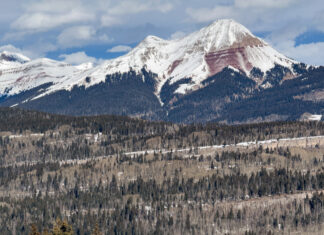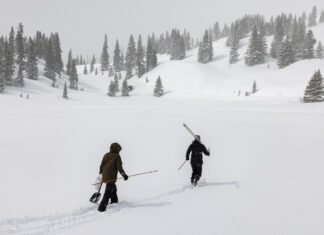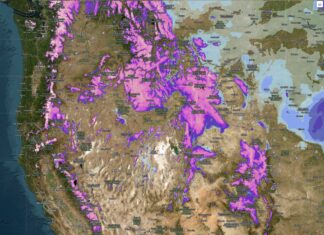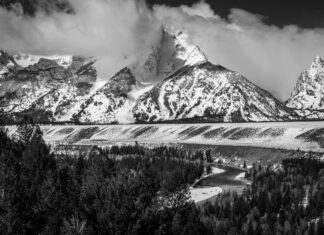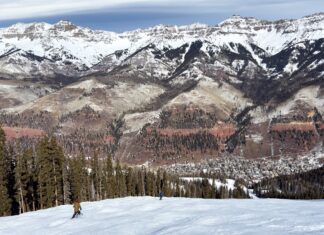Mitch Tobin
Q&A: Snow droughts imperil the American West’s water supply
A lack of snow impacts the West’s water resources, wildfire risk, recreational activities and ecosystem health.
Scientists use cosmic rays to study the snowpack
Extraterrestrial particles offer insights into Earth’s mountain water towers
Taking stock of the spring snowpack
Maps and charts visualize conditions at the April 1 milestone
9 graphics that visualize EPA’s climate change indicators for snow
The downward trajectory for snow carries serious consequences for water supplies, wildlife habitat, wildfire activity and outdoor recreation.
Rain or snow? Observers help scientists understand wintry weather
With a free app, volunteers gather crucial data on what type of precipitation is falling
Tip sheet: monitoring the West’s snowpack
What’s the current state of the snowpack? How have conditions changed over the season?
Climate change and the snowpack: an annotated bibliography
How is climate change affecting the West’s snowpack? What are the projections for the future?
Numerous scientific reports and studies in recent years have tried to answer these questions and others.
Below is an annotated bibliography...
Post-fire study finds snowpack melts earlier
Loss of forest canopy and deposition of ash alter forest hydrology
How much runoff comes from the West’s snowpack?
Snowmelt dominates many Western rivers, but climate change will reduce that contribution as raindrops replace snowflakes.



